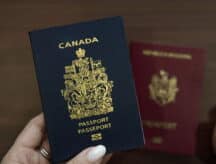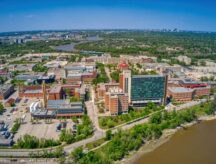Study: Fewer recent immigrants are seeking Canadian citizenship
A recent study by Statistics Canada has revealed that fewer recent immigrants in Canada are pursuing Canadian citizenship compared to 20+ years ago.
The study, which looks longitudinally at data from 1996 to 2021, revealed that there was a nearly 30% drop-in citizenship rates among recent immigrants, with most of this reduction occurring in the last 10 years.
Note: The term “immigrants” is used by Statistics Canada to denote those who have received Canadian permanent residence (PR).
Schedule a Free Canadian Citizenship Consultation with the Cohen Immigration Law Firm
What were the findings of this study?
The study found that the rate of citizenship uptake among recent immigrants (those in Canada for 5, 10, or 15 years) had been declining since 1996 (where 75.4% of immigrants pursued citizenship). In 2021, this rate had declined to 45.7% of immigrants—with the greatest reduction in this rate happening between 2016 and 2021.
The study also found some variance in these citizenship uptake rates between different groups of recent immigrants. For example, recent immigrants with a higher income level (between $50,000 - $100,000 CAD) were 14% more likely to take up citizenship than those with lower income (lower than $10,000 CAD). This trend also demonstrated the more that recent immigrants were educated—among those with a high school degree as their highest education level, 30.4% took up citizenship, as compared to 51.8% citizenship uptake among those with a university degree.
Additionally, variances could be observed among those with greater language proficiency. For example, those with neither English or French as their mother tongue only had a 19.7% uptake in citizenship, as compared to those with either English or French as their mother tongue—who had a 49.8% uptake rate.
Lastly, variances could also be observed by immigrant country of origin. The greatest recent downturn in citizenship rates could be observed among immigrants from East (-58%) and Southeast Asia (-40.7%). These were followed by immigrants from West Asia (-29.3%), Eastern Europe (-28.9%), and Central America (-28.2%).
What were some of the reasons for this downturn?
Some of the factors around which variances could be observed (education, language proficiency, Canadian work experience (as represented by earnings) also correspond to factors that are rewarded by Canada’s Comprehensive Ranking System (CRS). This may suggest that a greater adaptability to Canadian life can impact citizenship rates among recent immigrants.
The study also cites certain reasons that could potentially explain this downturn. Most pressing was the global COVID-19 pandemic, which the study suggests could account for as much as 40% of the decline in citizenship rate between 2016 and 2021. While this attribution shows the greatest reduction in citizenship uptake in this five-year period, it seems likely that the pandemic had an aggravating effect on citizenship rates.
In addition, the study cites several policy changes between 2006 and 2016 that may have impacted uptake rates, including increasing an applicant’s general knowledge of Canada via citizenship tests, requiring evidence of knowledge of French and English skills for permanent residents, and increasing citizenship application fees.
Lastly, the study cites that rapid decrease in citizenship rates among those from Southeast and East Asia suggest that international events localized to these areas may play a significant role in explaining the citizenship decline.
Does this mean Canada should be worried?
While the citizenship uptake rate among recent immigrants represents a significant downtrend, Canada still boasts one of the highest total immigrant citizenship rates of any Western country. In 2021, this rate stood at 81.7%, indicating that most immigrants in Canada chose to pursue citizenship.
In addition, many newcomers still benefit Canada (especially economically) as permanent residents, with a proportion of these immigrants choosing to not pursue citizenship to maintain ties with their home nation. Many source countries for immigrants (for example India) do not allow dual citizenship, meaning that some immigrants must choose between their old passport and a new one. While permanent residents experience many of the same benefits as citizens do, they cannot vote, nor occupy political office in Canada.
Regardless, the recent downtrend in citizenship uptake may represent a worry for the government, especially depending on how long such a trend continues.
Schedule a Free Canadian Citizenship Consultation with the Cohen Immigration Law Firm
- Do you need Canadian immigration assistance? Contact the Contact Cohen Immigration Law firm by completing our form
- Send us your feedback or your non-legal assistance questions by emailing us at media@canadavisa.com






